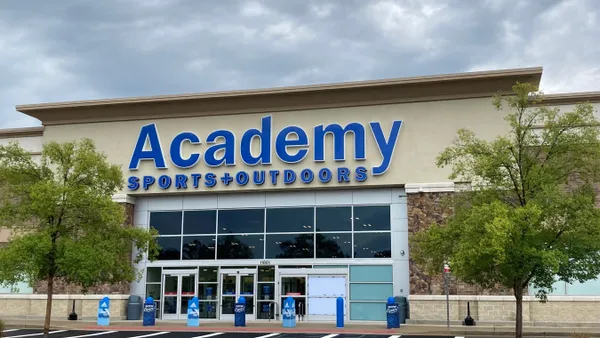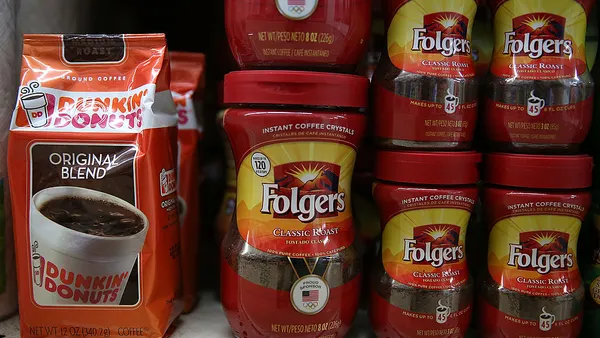Dive Brief:
- After a massive increase in distribution, restaurant owners are frustrated by stock-outs of the Impossible Burger, a plant-based burger patty made by Impossible Foods, they told Eater. The company announced its limited partnership with Burger King would expand nationwide by the end of the year.
- Impossible Foods CFO David Lee told CNN the company is sparing no expense to increase production. The San Francisco-based manufacturer is hiring a third shift for its existing production line while targeting summer to open a second line that would double supply.
- The burger is currently sold in 7,000 locations, but with the Burger King expansion, that number could double by the end of the year. The company plans to hit grocery store shelves this year as well.
Dive Insight:
Impossible Foods launched the Impossible Burger in 2016 through chef partnerships at prestigious restaurants. Now three years and thousands of restaurants later, the smaller customers are having trouble competing with the like of White Castle, Red Robin and Burger King for product.
Just one ingredient in the Impossible Burger is outside of the norm for any food supply chain — the protein Soy Leghemoglobin or "heme" that gives the patty a meat-like appearance (including a bleeding effect) and flavor. Statements from the company confirm its production capacity and a steep incline in demand has caused the shortage. Sourcing ingredients is not the issue.
The company acknowledged the effects its lack of production capacity had on its downstream customers. In a statement to CNN, Impossible said it "sincerely apologizes to all customers, particularly those who have come to depend on the additional foot traffic and revenue that the Impossible Burger has generated."
Restaurants are attempting to substitute other veggie burgers for the Impossible, but anecdotal evidence suggests eaters don't see the burger as interchangeable with its other vegan competition like the plant-based burger from Beyond Meat.
The insatiable demand seems to be consistent across the category even if customers are loyal to one brand. Beyond Meat CEO Ethan Brown told Business Insider his company was in a similar jam in 2017 and 2018. Last year, the company opened a new production facility, tripling its production capacity and more than doubling its headcount.














